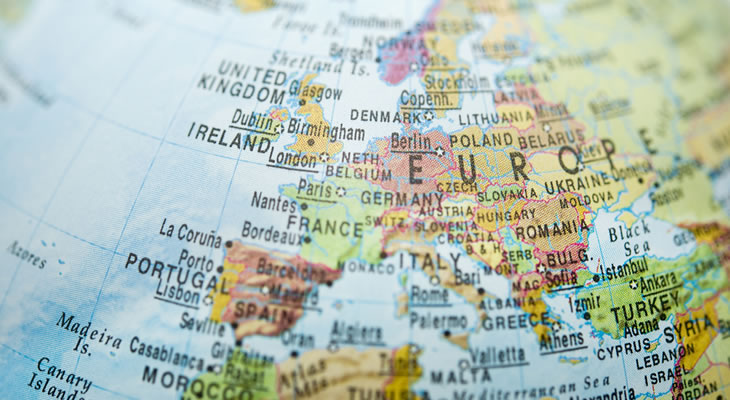Any optimism associated with the morning’s UK retail sales data appears to have faded, with the Pound (GBP) now declining against the Euro (EUR).
This change of fortunes for Pound Sterling is perhaps because economists are predicting difficulties in the UK retail sales sector going ahead.
Sales with fuel included might decline because transport costs are rising, while higher inflation could restrict general discretionary consumption.
(Last updated 24th May, 2018)
Despite better-than-expected UK retail sales data coming out today, the Pound (GBP) has still slipped against the Euro (EUR).
April’s retail sales readings have shown growth across the board, defying forecasts for slowdowns and exceeding expectations.
Responding positively to the news, Keith Richardson of Lloyds Bank Commercial Banking said:
‘Just like the weather, the forecast is brighter than it’s been for months.
‘The Bank of England recently decided against a heavily-trailed rise in interest rates, while inflation also continues to fall.
[This] might give shoppers a little more to spend in the months ahead.’
Taking a more measured approach, however, Rob Kent-Smith of the Office for National Statistics (ONS) said:
‘Over the longer-term, retail sales growth has slowed considerably.’
(Last updated 24th May, 2018)
Risk of Slowing UK GDP Triggering GBP/EUR Exchange Rate Decline
The Pound (GBP) has dipped against the Euro (EUR) today, while remaining at risk of greater losses before the weekend.
The next source of a Sterling slide could be second estimates of UK GDP growth in the first quarter of 2018.
Current estimates are for GDP growth to be revised down for the quarterly and annual readings, from 0.4% to 0.1% and from 1.4% to 1.2% respectively.
Economically speaking, the UK had difficulty getting off the starting blocks earlier this year due to poor weather in February and March, among other factors.
As such, these pessimistic predictions for slowing GDP growth may be accurate and result in a Pound Sterling to Euro (GBP/EUR) exchange rate decline.
UK Consumer Confidence Slowdown could Extend Pound Sterling to Euro (GBP/EUR) Exchange Rate Losses
Looking further ahead, the Pound Sterling to Euro (GBP/EUR) exchange rate could also be affected in the future by a UK consumer confidence reading for May.
Due to be announced on the coming Thursday, this is forecast to show a deterioration in already-negative consumer confidence levels with a slide from -9 points to -10.
Lower confidence among UK consumers might lead to the Pound being devalued, given that it would imply no major improvement in economic conditions.
Perceptions and sentiment don’t always reflect exact conditions on the ground, but if confidence is falling then this could lead to reduced spending and falling GDP.
Will Euro to Pound (EUR/GBP) Exchange Rate Fall on Forecast-Matching Drop in Confidence?
The Pound (GBP) remains at risk of dropping against the Euro (EUR) when UK consumer confidence stats are released, but Euro losses could precede this.
In a similar situation, a range of Eurozone confidence measures will be released next week, although these readings will come earlier on Wednesday.
Measures of business confidence, perceptions about the services sector and economic sentiment are all forecast to show declining readings.
If all readings show falling economic optimism then the Euro to Pound exchange rate could decline.
As with the UK, if sentiment levels fall then this could lead to reduced investment and consumer spending, which may ultimately contribute to a Eurozone-wide slowdown.
Faster Eurozone Inflation could Cause EUR/GBP Exchange Rate Recovery
There is a chance for the Euro (EUR) to advance against Pound Sterling (GBP) next week when Eurozone inflation rate figures are released on the coming Thursday.
Levels of base and core year-on-year inflation are both predicted to rise during May, which will represent a step closer to European Central Bank (ECB) interest rate hikes.
The ECB is still waiting for inflation to hit the 2% target range and although forecast-matching acceleration won’t touch this, it would still be a move towards the target.


Comments are closed.